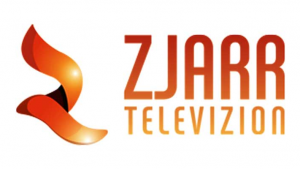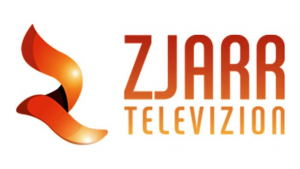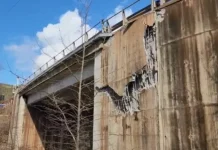Kërkesa për gjykim e Prokurorisë së Posaçme me të akuzuar deputetin e Partisë Socialiste, Plarent Ndreca tregon se tenderi për projektimin e dy godinave për Policinë e Shtetit u paracaktua dhe produkti ishte fiktiv dhe me probleme. Prokuroria ngre dyshime mbi lidhjet e ish-zv.ministrit Gjon Radovani dhe ish-ministrit Sandër Lleshaj, por akuzon Ndrecën si drejtuesin e skemës.
Në vitin 2019, pak muaj pasi Sandër Lleshaj ishte bërë ministër i Brendshëm dhe Plarent Ndreca u emërua sekretar i Përgjithshëm i tij, arkitekti Gjon Radovani – një ish-zëvendësministër në qeverinë e parë të kryeministrit Edi Rama, u bë vizitor i shpeshtë i zyrave të ministrisë.
Në bisedat elektronike të kapura nga SPAK, të cilat janë pjesë e kërkesës për gjykim ndaj deputetit Plarent Ndreca dhe 15 zyrtarëve të tjerë, Radovani rezulton se u angazhua “vullnetarisht” të ndihmonte “në asistimin e disa rregullimeve të brendshme dhe konfiguracioneve si në bojë e të tjera”.
Por përtej bojatisjes së Ministrisë së Brendshme, komunikimet tregojnë sipas SPAK se Radovani dhe një numër zyrtarësh në Ministri, të drejtuar nga ish-sekretari i Përgjithshëm dhe deputeti Plarent Ndreca, u angazhuan në paracaktimin e fituesve të një tenderi për projektimin e dy godinave për Policinë e Shtetit në Vlorë dhe Mirditë me vlerë 34.2 milionë lekë.
“Jam në paradhomë te min (ministria) e Sandrit, se më tel (telefonoi) Plarenti e desht me më taku”, shkruan Radovani në një nga bisedat e kapura nga Prokuroria e që citohen në kërkesën për gjykim. Takimet, mesazhet dhe një sërë e-mailesh të marra me vendim gjykate nga Gmail, tregojnë se Radovani përgatiti dokumentacionin dhe kriteret për shpalljen e tenderit të cilin e fitoi vetë disa muaj më vonë.
“Nisur nga sa më sipër, organi procedues konstaton se Njësia e Prokurimit ka vendosur si kriter ato licenca që disponohen nga kompania fituese BOE Ape dhe Derby shpk, pa i argumentuar si dhe kanë diskutuar paraprakisht me të pandehurat Denisa Skenderaj, Aida Shehi dhe Elora Kokalari mbi kriteret e vendosura duke provuar faktin se kjo kompani është paracaktuar për t’u shpallur fituese në këtë procedure prokurimi,” thuhet në kërkesën për gjykim që iu dërgua Gjykatës së Posaçme në fund të nëntorit 2024.
Prokuria kërkon gjykimin për akuzën e “shkeljes së barazisë në tendera” ndaj deputetit Ndreca. Me të njëjtën akuzë janë edhe 12 zyrtarë, ish-zyrtarë të Ministrisë së Brendshme, përfshi anëtarët e njësisë së prokurimit Denisa Skënderaj, Lira Kolasi dhe Blendi Kovi, anëtarët e Komisionit të Vlerësimit të Ofertave Lindita Mukaj, Ferdinant Tarazhi, Silva Dauti, Grida Isufi, Deni Klosi, Jonarda Qurku, anëtarja e Komisionit të Shqyrtimit të Ankesave, Julia Hysa, dhe zyrtarët e tjerë të përfshirë si Elora Kokalari dhe Aida Shehi. Ndërkohë tre anëtarët e komisionit për marrjen në dorëzim të projektit, Emiliano Mehmeti, Klejdi Meço dhe Erand Rrobaçi, akuzohen për “falsifikim të dokumenteve”.
Radovani nuk është pjesë e kërkesës për gjykim, por ai i ka mohuar publikisht akuzat dhe pretendon se është palë e dëmtuar. Deputeti Ndreca po ashtu ka mohuar të ketë bërë shkelje. Ish-ministri i Brendshëm, Sandër Lleshaj nuk iu përgjigj një kërkese për koment të BIRN deri në publikimin e shkrimit. Qëndrim mohues kanë mbajtur para Prokurorisë edhe të pandehurit e tjerë.
Me detyrim përcaktim
Kërkesa për gjykim e Prokurorisë së Posaçme bën me dije se kur Radovani filloi të vizitonte Ministrinë e Brendshme për të ndihmuar vullnetarisht në llojin e bojës dhe stilizime, ai po ashtu pati një komunikim intensiv me telefon e me e-mail me zyrtarë të kësaj ministrie. Prokuoria thotë se Radovanin në këto rrethe e prezantoi Ndreca dhe ish-ministri Sandër Lleshi.
“Kam marrë kontakte me Sekretarin e Përgjithshëm dhe më është lënë si kontakt prej tij se është bërë një lyerje e zyrave të Sekretarit të Përgjithshëm për çështje pigmenti. Nuk e kam takuar më parë. Kjo ka ndodhur që në momentin e parë që ka ardhur Plarent Ndreca si Sekretar i Përgjithshëm që ka qenë diku në muajin Korrik 2019”, thuhet në dëshminë që SPAK mori nga Aida Shehi, atëherë Drejtore e Përgjithshme e Drejtorisë Ekonomike dhe Shërbimeve Mbështetëse në Ministrinë e Brendshme.
Radovani iu prezantua si pikë kontakti shefes së Kabinetit, Elora Kokalari edhe nga ministri Lleshaj. “Në mënyrë që të jepte opinionin e tij të ekspertit mbi rregullimin e ngjyrave të brendshme që ishin të paunifikuara dhe Ministri kërkonte t‘i unifikonte,“ ka dëshmuar Kokalari, mbi arsyet e kontaktit me Radovanin.
Komunikimet tregojnë se “çështja e pigmentit” të bojës në zyrën e ministrit dhe Ndrecës nuk ishte arsye kryesore e vizitave dhe shkëmbimeve. Prokuroria gjeti në shkëmbimet mes Radovanit dhe zyrtares së ministrisë, Elora Kokalari, se ish-zëvendësministri mblodhi informacion për gjendjen e komisariateve, po ashtu ajo i nisi atij foto të godinave të Policisë së Shtetit dhe të dhëna të tjera specifike.
Komunikimet mes Radovanit, punonjësve të Ministrisë së Brendshme dhe punonjësve të kompanisë së projektimit që sipas SPAK kontrollohej prej tij, bëjnë të qartë se ish-zëvendësministri po përgatitej të fitonte tenderin për projektimin e godinave.
Në dokumentet e ndara mes tij dhe zyrtarëve të ministrisë u përcaktuan edhe kritere të tenderit që i shkonin për shtat bashkimit të kompanive Derbi shpk dhe Ape shpk, të cilat sipas prokurorisë kontrollohen nga Radovani.
Ndër kriteret që u përfshinë në dokumentet e tenderit dhe u përdorën për selektim ishte edhe ajo që u prezantua nga Radovani në shkëmbime si një nga “pikat e forta” që ai ofronte, eksperiencë internacionale dhe nacionale me më shumë se 10 vjet si arkitekt.
Në email Radovani nuk e diskuton përfshirjen, por vetëm formën. “Mënyra se si unë mund të marr pjesë është a) si profesionist i lirë me titull gjerman në jointventure me një zyrë projektimi në Tiranë; ose b) nëpërmjet një zyre projektimi në Tiranë e cila lidh me mua një kontratë konsulence”, shkruan ai në email. Për prokurorinë kjo është dëshmi se gjithçka ishte paracaktuar në favor të tij.
Përtej këtij momenti, SPAK thotë se përcaktimi i Komisionit të Shqyrtimit të Ofertave nga Ndreca në rolin e Sekretarit të Përgjithshëm, po ashtu është provë e paracaktimit. Duke iu referuar të dhënave të mbledhura mbi mënyrën se si u zgjodhën anëtarët e këtij komisioni, të cilët po ashtu janë nën akuzë, prokuroria thotë se për disa prej tyre nuk kishte arsyetim se si u përfshinë. Ata madje nuk plotësonin as kushtin e pasjes mbi 10 vjet eksperiencë, siç i kërkohej kompanive pjesëmarrëse.
“Këto fakte provojnë se përzgjedhja e anëtarëve të KVO nga ana e Sekretarit të Përgjithshëm, të pandehurit Plarent Ndreca është bërë me synimin që ky Komision të jetë thjesht një komision formal në përzgjedhjen e kandidatit fitues të paracaktuar,” thuhet në kërkesë për gjykim.
Përtej këtij fakti, Prokuroria gjeti se ndryshe nga ofertuesit e tjerë, Radovani u mbajt me hatër. Edhe pse një nga kompanitë e bashkimit ekonomik nuk kishte paguar faturat e energjisë, një argument që u përdor për skualifikimin e një konkurrenti tjetër në garë, në rastin e “të paracaktuarit” kjo u quajt “devijim i vogël”. I njëjti arsyetim u përdor edhe për mospasjen e numrit të duhur të punonjësve.
“Ky fakt provon se ky bashkim operatorësh është favorizuar nga KVO që në Fazën e I-rë të kësaj procedure prokurimi”, thuhet në kërkesë për gjykim.
Po ashtu, Prokuroria gjeti se ndryshe nga ofertuesit e tjerë Radovani dhe kompanitë me të cilat ai paraqiti ofertën e kishin atë konkrete me emra të saktë të godinave për të cilat do punonin.
Komunikimet mes Radovanit dhe Kokalarit tregojnë se ky i fundit ishte gjithashtu i sigurt që do të fitonte. Pak pas përfundimit të fazës së parë të tenderimit dhe ende pa konfirmim zyrtar, ai i shkruan shefes së kabinetit të ish-ministrit që ta ndihmojë të shkojë të vizitojë komisariatin e Vlorës.
Para se të piqej gjeli i Vitit të Ri
Prokuria vlerëson se palët ishin aq të qarta për fituesin sa kur procedurës i erdhi fundi më 31 dhjetor 2019, kur shumica e qytetarëve bëhen gati për festë, në ministrinë e Brendshme u punua fort dhe u nënshkruan brenda ditës kontrata dhe u morën në dorëzim projektet që siç doli kishin një sërë problemesh.
Madje, hetimet zbuluan se plani fillestar ishte për projektimin e 4 godinave me fond 55.2 milionë lekë, por po ditën e fundit të vitit, Ndreca që priste të firmoste kontratën, mësoi se këto para nuk ishin në gjendje.
Prokuroria thotë se pas këtij informacioni, Ndreca urdhëroi përpilimin e një kontrate për shumën që ishte në dispozicion dhe vetëm për dy objekte, duke i përcaktuar edhe kostot aty për aty. “Fondet për dy komisariate janë në llogarinë e institucionit. Të shikohet mundësia e lidhjes së kontratës për fondet që janë në dispozicion! Fondet në dispozicion janë 35 milionë lekë, për rrjedhojë të hartohet kontrata për dy komisariate”, citohet urdhri i Ndrecës.
Brenda ditës u përpilua një kontratë e re me shumën 34.2 milionë lekë, që sipas prokurorisë është fryrë qëllimisht. “Në këtë Kontratë, konstatohet se tarifa e projektimit është rritur fiktivisht në vlerën 5,696,296.9 Lekë nga ajo e paraqitur në propozimin ekonomik në fazën e konkursit të projektimit”, thuhet në kërkesë për gjykim.
Po ashtu, brenda ditës me urdhër të Ndrecës u ngrit një komision për të marrë në dorëzim projektin, zbatimi i të cilit duhej të fillonte atë ditë.
Hetimet gjetën se ndryshe nga sa parashikohej në kontratë, Radovani dhe të tjerët e dorëzuan punën me të nënshkruar kontratën dhe po atë ditë dorëzuan edhe faturat mbi të cilat do të paguheshin.
Prokuroria thotë se këto dokumente dhe dorëzimi ishin fiktive dhe projektet nuk u dorëzuan fizikisht dhe as u protokolluan atë ditë. Tre personat, të caktuar nga Ndreca për marrjen në dorëzim të punës akuzohen se falsifikuan dokumentacionin. “Nga hetimi i kryer ka rezultuar e provuar se kemi të bëjmë me veprime fiktive të marrjes në dorëzim të dokumenteve për arsye se lidhja e kontratës, urdhri i ngritur për marrjen në dorëzim të projektit, procesverbali i mbajtur për marrjen në dorëzim, dorëzimi i faturave tatimore, janë kryer të gjitha brenda një dite në dt. 31/12/2019”, shprehet prokuroria.
Anëtarët e këtij komisioni thanë se ishin urdhëruar nga Ndreca përmes një sekretareje për të marrë në dorëzim projektet ditën e fundit të vitit, për të mos djegur fondet. “Sipas deklaruesit, sekretarja mund të quhej Denisa e cila i ka kërkuar Komisionit nëse ishte e mundur të përfundohej procesi i marrjes në dorëzim po atë ditë sepse digjeshin fondet”, perifrazohet në kërkesë për gjykim dëshmia e anëtarit të komisionit, Klejdi Meço.
Por nxitimi nuk duket se u solli atyre përfitime. Hetimet gjetën se me t’u kthyer në zyrë në janar 2020, palët u angazhuan të përmbyllnin skemën dhe merrnin pagesën, por hasën menjëherë në pengesa. Në shkurt 2020, drejtori i Buxhetit dhe Menaxhimit Financiar i shkroi Ndrecës ndër të tjera se veprimet e kryera ishin problematike, se reduktimi i fondit ishte bërë pa argumente dhe binte ndesh me legjislacionin. Po ashtu, zyrtari bëri me dije se procedurat dukeshin fiktive. “Kontrata e nënshkruar, urdhri i marrjes në dorëzim të projektit, procesverbali i marrjes në dorëzim, faturat tatimore, mbajnë datën 31/12/2019 duke krijuar dyshime për veprime fiktive,” i raportoi ai Ndrecës.
Gjithsesi, Ndreca akuzohet se e shtyu përpara projektin dhe ia transferoi përgjegjësinë për pagesë Policisë së Shtetit, ku me urdhër të tij u bënë takime për këtë punë.
Por kur projektet i shkuan Policisë së Shtetit që kjo e fundit të bënte pagesat, specialistët këtu gjetën se ato ishin të mangëta dhe me probleme.
“Në pjesën dërmuese të ambienteve nuk janë parashikuar dritare,” thuhet në letër-këmbimin mes Policisë së Shtetit dhe sekretares së re të Përgjithshme të Ministrisë së Brendshme. Aty thuhet se në Vlorë u parashikua një holl 642 metra pa funksione, ndërsa mjediset për të miturit ishin pa dritare dhe pa ndriçim natyral. Policia e Shtetit gjeti se projekti nuk plotësonte kushtet për sigurinë dhe sipërfaqja e godinës ishte dyfishuar pa qenë nevoja.
Mbi bazë të këtyre problemeve, Policia e Shtetit refuzoi të bënte pagesën dhe u padit më pas nga dy kompanitë projektuese, të cilat këmbëngulin se e kanë bërë punën.
Lidhje shoqërore dhe rimbursime
Prokuroria bën me dije se ka hetuar dy prej lidhjeve të Radovanit në ministrinë e Brendshme, atë me ish-ministrin Sandër Lleshaj, që është përkufizuar shoqërore dhe atë me Ndrecën që siç del ishte pikë referimi për shtyrjen para të praktikës.
“Lidhur me shtetasin Sandër Lleshaj u gjendën biseda të shkëmbyera në telefon mes përdoruesit regjistruar me emrin “Sandër Lleshi” dhe Gjon Radovanit, që i përkasin periudhës nga 2017 deri në 18 Dhjetor 2019 dhe rezulton se këta shtetas kanë patur marrëdhënie shoqërore,” thotë prokuroria.
Por në komunikimet që prokuroria ka përfshirë në kërkesë për gjykim nuk ka diskutime mes Radovanit dhe ish-ministrit për tenderin.
Megjithatë nga komunikimet e Radovanit me punonjës të ministrisë del që ish-ministri mund të ishte dijeni për këtë skemë, ose të paktën kjo pretendohet nga Radovani.
“Unë, siç i premtova ministrit, mund të merrem me dëshirë me këtë punë dhe jam i sigurt, që do merrni maksimumin e qualitetit,” shkruan ai në komunikim me shefen e kabinetit të Lleshajt. Megjithatë, prokuroria nuk e ka përfshirë ish-ministrin Lleshaj në hetim dhe nuk referon që ai të jetë përfshirë më tej në këtë proces.
Përndryshe, marrëdhënia me Ndrecën, ish-Sekretar i Përgjithshëm, është më intensive dhe siç zbulohet nga komunikimet edhe më e komplikuar. Prokuroria thotë se pavarësisht mohimit të tyre është dokumentuar që ata e kishin diskutuar tenderin paraprakisht dhe kishin shkëmbyer mesazhe e dokumente me njëri- tjetrin para dhe pas këtij të fundit. Sipaprokurorisë, ky është një fakt i pashmangshëm dhe se Ndreca e Radovani shfrytëzuan ofertën për konsulencë “pro bono” të Gjon Radovanit për: Lyerjen e unifikuar të mureve të brendshme të ministrisë, për këto takime.
Prokuroria thotë se Ndreca nuk është i besueshëm kur pretendon që në takimet jo të pakta mes të dyve “e vetmja bisedë që nuk kanë përfituar nga rasti të zhvillojnë me njeri tjetrin në këto takime, është pikërisht biseda rreth “Projektit të komisariateve”.
Pavarësisht se pjesë të komunikimeve mes të dyve ishin fshirë, prokuroria thotë se gjeti në mesazhet mes Radovanit dhe të tjerëve gjurmë të përfshirjes. “Ciao Astrit, fola në tel me Plarentin. Ai thotë se nëse Elena bën që komisioni të firmosë se projekti i zbatimit është konform projekt-idesë, ai e ven firmën. Si shkresë vetëm me emër të tij nuk e bën, sepse SP (Sekretari i Përgjithshëm) firmos pas një komisioni. Nesër po i shkruaj Elenës dhe të them çfarë do më përgjigjet”, thuhet në komunikimet e Radovanit me të tretë.
Po ashtu, Prokuroria gjeti mesazhe të Ndrecës që Radovani ua kishte dërguar të tjerëve. Ndreca pretendoi sipas prokurorisë që nuk i kishte nisur ai mesazhet, po ishin nisur sikur ishin shkruar prej tij. Megjithatë, SPAK pretendon se Radovani nuk kishte arsye për ta bërë këtë në komunikim me bashkëpunëtorë dhe vartës të tij.
Marrëdhënia megjithatë nuk duket e paqtë. Kur pagesa kishte ngecur dhe palët ishin në ngërç, në një komunikim me një person të tretë, Radovani ankohet për Ndrecën, por thotë se i vinte turp ta adresonte problemin me ministrin.
“Të lutem mos i thuj gja Sandrit për atë punën qe me Plarentit, se më vjen turp dhe nuk du me i hi atyne diskutimeve…”, shkruan Radovani. Në bisedë lihet të kuptohet se ata kishin tentuar ta bindnin Lleshajn ta hiqte Ndrecën, por ai nuk ua kishte dëgjuar këshillën. “Na e kena për detyrë si mik me i folë për gjana të randësishme, mandej gjithkush din vetë çka ban,” shkruan Radovani në përgjigje të mesazhit ku i thohet se ish-ministrit i ishte folur keq për Ndrecën.
Prokuroria po ashtu ka gjetur edhe një mesazh që lë të kuptohet se Ndreca priste diçka nga afera, që në kërkesë përshkruhet si “rimbursim”, por hetimet nuk kanë shkuar përtej kësaj pike. “Nga ana tjetër, Plarenti po më thonte, se a zgjidhet me policinë apo me MB (Ministrinë e Brendshme), ato që ai ka dhënë për projektin, janë già të dala dhe me një fjalë pret rimbursimin”, i shkruan Radovani një bashkëpunëtori. I pyetur nga prokuroria, bashkëpunëtori ka mohuar të dijë për rimbursimin dhe çfarë forme do të kishte ai./BIRN






